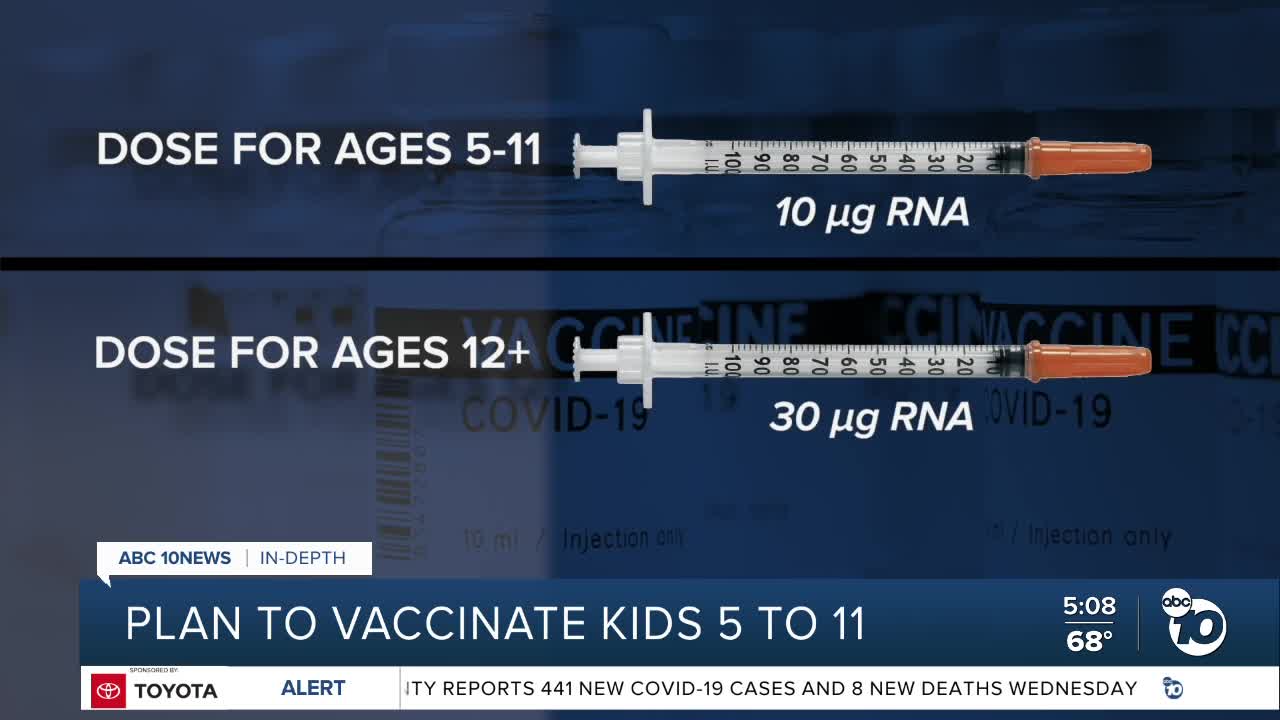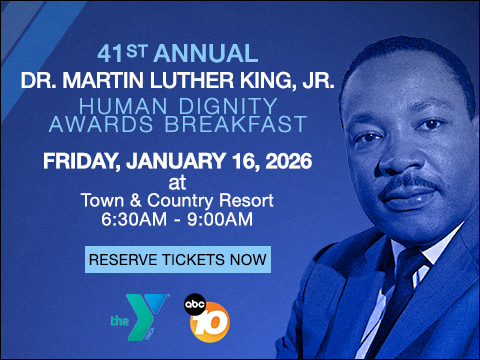SAN DIEGO (KGTV) -- In as little as two weeks, pediatricians and other providers could begin vaccinating children as young as five years old with Pfizer’s COVID-19 vaccine.
The Biden Administration sought to assure the public Wednesday it is ready for the task of quickly vaccinating 28 million children between the ages of 5 and 11 once regulatory agencies give the green light.
The White House COVID response team said it has secured enough doses for every child in that age group. About 15 million of the doses will ship to providers during the first week of authorization, according to response team coordinator Jeff Zients.
“Should the FDA and CDC authorize the vaccine, we will be ready to get shots in arms,” he said.
Here’s the timeline: The FDA’s vaccine advisory committee meets on Oct. 26. The CDC’s advisory committee meetings Nov. 2 and 3. The agencies are expected to issue a final decision shortly after that.
Regulators are assessing whether the safety and effectiveness data submitted by Pfizer meets the criteria for emergency authorization.
“From what the company has released, it looks encouraging,” said Dr. Mark Sawyer, a pediatrician at Rady Children’s Hospital who serves on both advisory committees.
Dr. Sawyer said he’s still waiting to receive the detailed data from the clinical trials, but as a pediatrician, he knows there’s a lot at stake.
“What we hear a lot from some people is that children don’t get sick with COVID, and that’s just not the case,” he said. “We’ve had 600 deaths in the United States from COVID in children. We’ve had several hundred children at Rady Children’s Hospital right here in San Diego.”
So far, Pfizer is the only company that has applied for permission to give doses to the 5 through 11 age group. Kids will get two shots of the vaccine spaced three weeks apart, just like adults.
However, children in this age group will get a smaller dose, ten micrograms of RNA, compared to the 30 microgram doses for individuals 12 and older. Providers will also use a smaller needle, Zients said.
This time around, there will not be mass vaccination sites. Instead, Zients said the federal government is teaming up with 25,000 pediatric and primary care offices and thousands of pharmacies to distribute the shots. Schools will also host vaccine clinics.
The idea is to make both children and their parents comfortable by using providers they trust. That’s important, Sawyer said, because even though children don’t often fall severely ill with COVID, studies show kids can spread the delta variant just as easily as adults.
“To get us out of the pandemic, we need kids to get immunized. We need the rest of the adults to get immunized. And then we can go back to our lives as we used to know them,” he said.
A poll in late September by the Kaiser Family Foundation found one in three parents of a 5 through 11-year-old planned to get their child vaccinated “right away” following authorization. Another third said they wanted to “wait and see” how the vaccine affected children.





